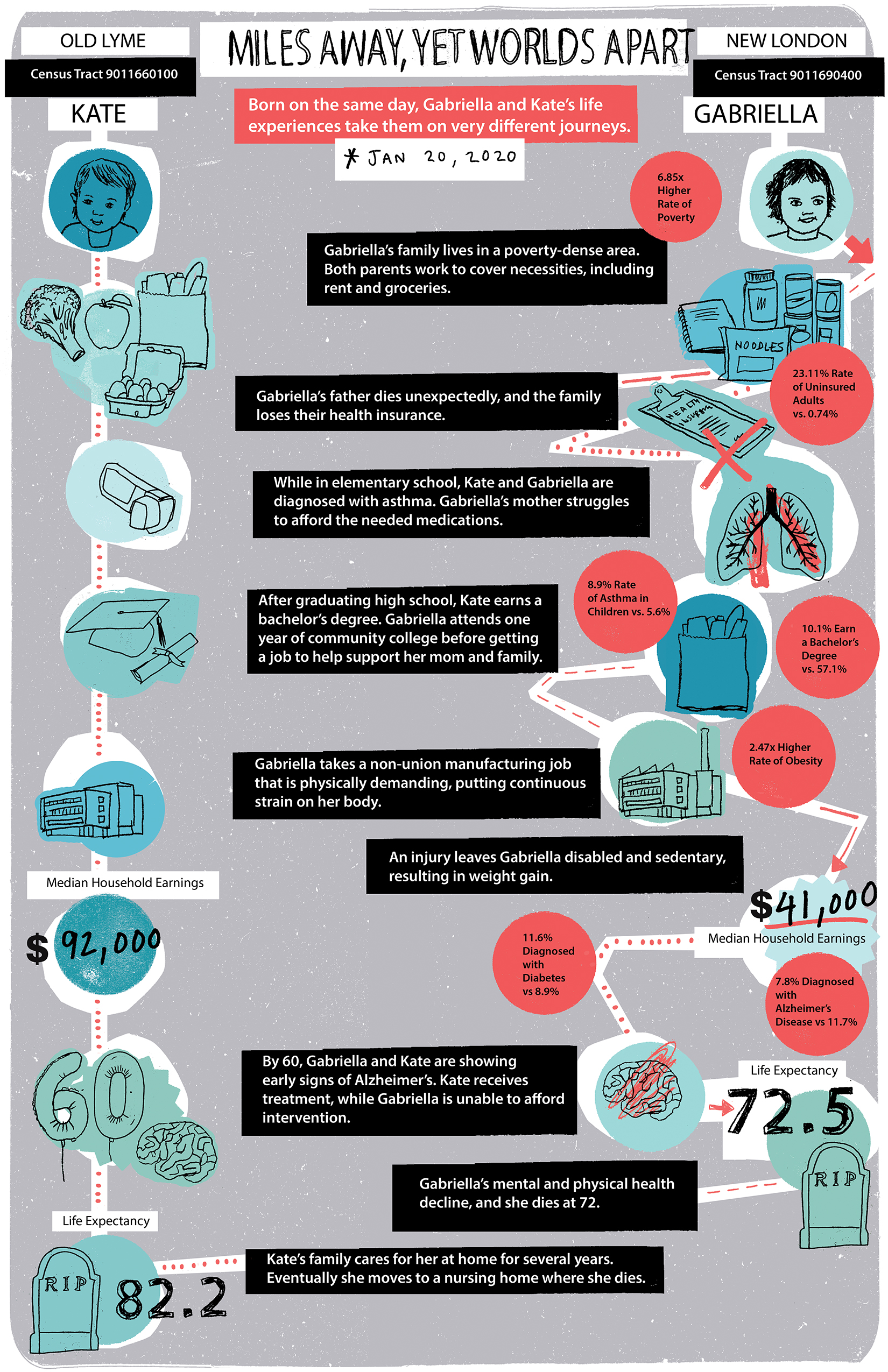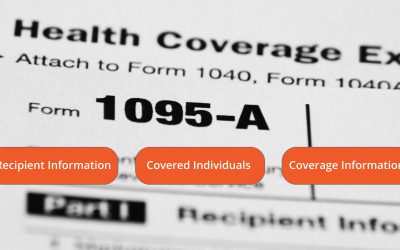Eliminating health disparities in Connecticut: You can help us achieve true and sustainable health equity.

“Reducing health disparities is core to our mission at Access Health CT. We can only achieve that goal for all people in Connecticut by addressing social determinants of health, particularly those among communities of color. Join us in our mission-driven goal of health equity for all Connecticut residents, reaching across city lines, one neighborhood at a time.”

James Michel
Chief Executive Officer
Access Health CT is playing a central role in achieving this goal.
Health disparities are health differences that are closely linked with social, economic, and/or environmental disadvantage. They adversely affect people based on a variety of factors including race, ethnicity, religion, gender, socioeconomic status, disability, and geographic location, among many others.
Our mission is to increase the number of Connecticut residents who are insured, lower their costs, promote health, and eliminate health inequalities. Since 2013, Access Health CT (AHCT) has helped more than one million individuals and small businesses get health insurance, and we’ve helped cut Connecticut’s uninsured rate in half. This is great progress, but more must be done to reduce health disparities that persist in our state.
Are health disparities really a problem in Connecticut?
The answer is a resounding “YES.” Despite our state’s high ranking in wealth and health, there are substantial disparities in the health status of — and in the healthcare delivered to — lower-income Connecticut residents, particularly among people of color.
One stark example is the disparity in life expectancy across Connecticut towns. In a neighborhood of Westport that is 91% White, the life expectancy is 89.1 years. In a neighborhood of northeast Hartford that is 94% Black and Hispanic, the life expectancy is just 68.9 years. To put this in perspective, explore the infographic that takes you on a hypothetical journey with Marcus and Tyler — two people who face vastly different circumstances and life expectancies, despite being born just miles apart.
See for yourself.
Connecticut has one of the country’s highest levels of income inequality — a key metric related to health disparities. The maps below illustrate how other key metrics are manifested across our state’s neighborhoods. Use the buttons to explore.
Life expectancy is the average amount of time that a person is expected to live. This map uses data from a collaborative effort called the “U.S. Small-area Life Expectancy Estimates Project (USALEEP),” conducted by the National Center for Health Statistics (NCHS), the National Association for Public Health Statistics and Information Systems (NAPHSIS), and the Robert Wood Johnson Foundation.
Tejada-Vera B, Bastian B, Arias E, Escobedo LA., Salant B, Life Expectancy Estimates by U.S. Census Tract, 2010-2015. National Center for Health Statistics. 2020. Designed by B Tejada-Vera, B Bastian, E Arias, L Escobedo and B Salant: National Center for Health Statistics. Downloaded from https://www.cdc.gov/nchs/data-visualization/life-expectancy/ August 2, 2021
The Area Deprivation Index (ADI) is a tool that ranks neighborhoods based on socioeconomic disadvantages. These factors include income, education, employment, and housing quality. ADI is often used to inform how healthcare can be delivered and guides policy making and policy decisions, especially on behalf of residents within the most disadvantaged regions.
Kind AJH, Buckingham W. Making Neighborhood Disadvantage Metrics Accessible: The Neighborhood Atlas. New England Journal of Medicine, 2018. 378: 2456-2458. DOI: 10.1056/NEJMp1802313. PMCID: PMC6051533. AND University of Wisconsin School of Medicine Public Health. 2019 Area Deprivation Index v2.0. Downloaded from https://www.neighborhoodatlas.medicine.wisc.edu/ August 2, 2021
The Non-White Percentage of Population is measured by the number of people who reported being “White” and “Not Spanish/Hispanic/Latino” for the American Community Survey (ACS).
U.S. Census Bureau (2020). American Community Survey 5-Year Data (2009-2019). Retrieved from https://api.census.gov/
The American Community Survey (ACS) uninsured rate is a measure of the percentage of participants who indicated they were uninsured at the time of their interview.
U.S. Census Bureau (2020). American Community Survey 5-Year Data (2009-2019). Retrieved from https://api.census.gov/
AHCT is committed to correcting health disparities.
For years, AHCT has laid the groundwork for efforts to reduce health disparities in Connecticut. Through our work with some of the state’s most vulnerable populations, communities, and geographies, we’ve also developed keen insights into the reasons why health disparities exist. Our work with more than 1600 community partners helps make all of this possible.
We work with organizations that help people navigate the enrollment and renewal process, and help people better use and understand their insurance plans.
We work closely with community health centers and other community partners to help people understand the importance of having and using health insurance.
Our certified application counselors help people enroll in health insurance, and we work with certified brokers in all CT communities.
We participate in health fairs and community engagement events in communities with high levels of health disparities (Bridgeport, Danbury, East Hartford, Greenwich, Hartford, Manchester, Middletown, New Britain, New Haven, Norwich, Stamford, and others).
We reach people at farmers markets, food pantries, churches, CT Foodbank and Foodshare events, Hartford Public Library events, vaccine clinic sites, community resource fairs, and more.
We’ve established great relationships with local businesses like grocery stores, barber shops,and salons that help us understand how we can help their customers and communities.
We can’t do this without our community partners — and we’d like you to be one of them.
Reducing health disparities — and, we hope, ultimately eliminating them — can’t be done by just one person or organization. While we’ve made inroads thanks to our network of partners and our strong ties to state agencies and elected officials, this is a cause of concern to everyone. We invite and encourage you to get involved.

For individuals >
As an individual, you can help by spreading the word to your family, friends, colleagues, and neighbors about the importance of having health insurance, of having access to care, and of taking advantage of preventive care. Follow us and share our posts on Facebook, YouTube, Instagram, and Twitter.

For organizations >
If you’re part of an organization that serves Connecticut residents or is connected to individuals or businesses that reach our under served communities, please contact us. Let’s discuss opportunities to coordinate efforts or to form a productive partnership.

For elected officials >
Your continued help is valued as you share our mission and opportunities with your constituents and organizations in your district. Need something special? Check out our Elected Officials webpage for more information.

Broker Academy >
AHCT will hire a pre-licensing training company that would certify new health insurance brokers from selected communities in Connecticut. This program is free. Download/view our Program Flyer here.
Events
August 21, 2025 - South Marshall Back to School
📍 Location: Marshall House
📫 Address: South Marshall Harford
📅 Date: August 21, 2025
🕐 Time: 2:00 PM – 5:00 PM
🏷️ Category: Community
August 30, 2025 - Overdose Awareness Day
📍 Location: Meriden Green
📫 Address: 77 State Street Meriden
📅 Date: August 30, 2025
🕐 Time: 9:00 AM – 1:00 PM
🏷️ Category: Community
September 6, 2025 - Health Wellness & LIfestyle Expo
📍 Location: Harbor Point Boardwalk
📫 Address: 1 Harbor Point Boardwalk Stamford
📅 Date: September 6, 2025
🕐 Time: 9:00 AM – 5:00 PM
🏷️ Category: Community
September 6, 2025 - Summer Palooza Family Festival
📍 Location: Heritage Park
📫 Address: 15 Great Hillwood Road Moodus
📅 Date: September 6, 2025
🕐 Time: 9:00 AM – 2:00 PM
🏷️ Category: Community
September 21, 2025 - 2025 Back to School Carnival
📍 Location: Barnard Environmental Science & Technology School
📫 Address: 170 Derby Ave New Haven
📅 Date: August 21, 2025
🕐 Time: 1:30 AM – 6:00 PM
🏷️ Category: Community
September 27, 2025 - YCCI Community Health Fair
📍 Location: Scantlebury Park
📫 Address: 139 Ashmun Street New Haven
📅 Date: September 27, 2025
🕐 Time: 11:00 AM – 4:00 PM
🏷️ Category: Community
Want to learn more about health disparities in Connecticut?
These resources will help you gain a greater understanding of the problem, what’s being done to correct it, and how you can help.
To learn more about health disparities, download Health Disparities and Social Determinants of Health in Connecticut. Not enough time to read the full health disparities report? Download the executive summary.
To learn more about the uninsured in Connecticut, download Understanding underlying drivers, barriers and needs of the uninsured in Connecticut.
Learn how you can help
To learn more about our Health Equity efforts and how you can help, please complete the form below.
Latest from the blog
How to get the most out of your preventive screenings at no extra cost to you
Taking care of your health is important. One way to stay healthy is by getting regular checkups and screenings. Many preventive screenings are covered at no cost when you have health insurance through Access Health CT (AHCT). Here’s how to make the most of these...
Moving to Connecticut? Here’s How to Enroll in Health and Dental Coverage through Access Health CT
If you’re moving to Connecticut and you don’t have health or dental coverage, or if you’re unsatisfied with your current coverage, you may qualify for health and dental coverage through Access Health CT (AHCT). AHCT is the state’s official health insurance...
How to Report Life Changes to Access Health CT and Why It’s Important
Life can change in many ways. You might have a change in income (how much money your household makes), get married or have a baby. When these things happen, it’s important to tell Access Health CT (AHCT) right away. Reporting life changes will help you get the right...
Navigating health coverage when you’re self-employed: A guide to Access Health CT options
Being self-employed means you can set your own schedule and be your own boss. But it also means that you may need to find your own health or dental coverage. Access Health CT (AHCT) is here to help you get the coverage you need.Understanding coverage If you’re...
How and why you need to verify your personal information with Access Health CT
When you apply for health coverage through Access Health CT (AHCT), we might ask you to provide certain documents to verify your personal information. These are called verification documents. They help us check important information like your household income,...
Look for Form 1095-A from Access Health CT to file your Federal Income Tax Return
Tax season is here. If you were enrolled in health insurance through Access Health CT (AHCT) last year, you’ll need Form 1095-A to file your federal income tax return. This Form has details about your health plan and any financial help you received. Keep it safe, just...










